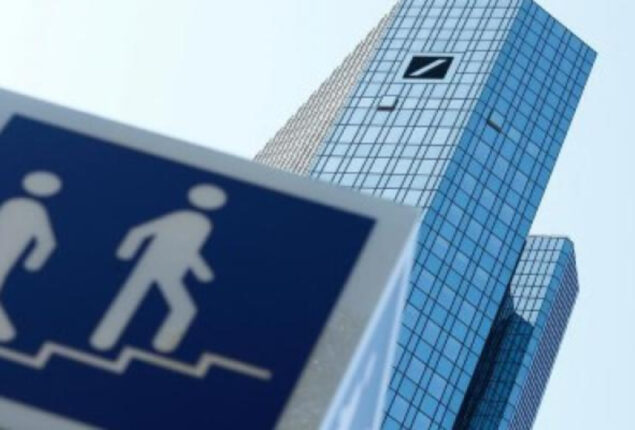
As credit demand grows in India, banks may soon be scrambling for deposits (credits:google)
- When European banks inform investors about how their business has performed this year, they are likely to highlight their areas of weakness given the potential economic storm they are facing and the first increase in borrowing costs in more than ten years.
- When they release their second-quarter results the next week, UBS (UBSG.S), Deutsche Bank (DBKGn.
- On the one hand, banks benefit from rising interest rates since they can charge more for loans.
When European banks inform investors on how their business has performed this year, they are likely to highlight their areas of weakness given the potential economic storm they are facing and the first increase in borrowing costs in more than ten years.
They already had to deal with skyrocketing inflation and rising interest rates, which act like a chokehold on borrowers, in addition to the Ukraine conflict, which has jolted Europe’s economy by limiting its access to energy, among other things.
When they release their second-quarter results the next week, UBS (UBSG.S), Deutsche Bank (DBKGn.DE), Credit Suisse (CSGN.S), BNP Paribas (BNPP.PA), and UniCredit (CRDI.MI) may set the tone for investors.
On the one hand, banks benefit from rising interest rates since they can charge more for loans. However, if clients struggle to pay back loans due to growing borrowing costs and price increases, they suffer.
Due to the uncertain economic climate, investors are becoming cautious, which means European banks will experience a decline in dealmaking and the sale of investment products, similar to their American competitors.
Germany’s banks are at the epicentre of the storm in Europe since the nation is especially reliant on Russian energy and its economy will be severely impacted by any supply disruptions.
Any worries about European banks this year, according to Giles Edwards, an analyst with the ratings agency S&P, will depend on how well customers manage their loan repayments.
He stated that he was keeping an eye out for “early warning indicators, signs that there is pressure, a sort of slow squeeze essentially starting to sort of pop a few buttons here and there” even if he did not anticipate a significant increase in bad loans right away.
Analysts are especially interested in what will happen to German electricity producer Uniper (UN01.DE), which is negotiating a bailout with the government.
According to Michael Rohr, an analyst with credit rating agency Moody’s, German banks may still need to set aside more money for the consequent loan losses.
Analysts have decreased profit projections for Germany’s largest bank, Deutsche Bank, which has recovered from a succession of crises, over the past two months and increased projections for the amount of bad loan provisions it will need to make.
According to Rohr, “a severe recession” poses the greatest risk to Deutsche. There are other glaring warning flags.
According to the results of a survey conducted by the European Central Bank, banks in the euro zone limited lending access in the second quarter and will keep being cautious.
As they prepare for loan losses, Germany’s cooperative banks also stated that they anticipate a “significant fall” in earnings this year.
Euro zone bank stocks (.SX7E) have dropped more than 22% year to date, outperforming the larger pan-European STOXX 600 index of equities, which is down approximately 13%, underscoring these concerns.
Also Read
Read More News On
Catch all the International News, Breaking News Event and Latest News Updates on The BOL News
Download The BOL News App to get the Daily News Update & Follow us on Google News.




